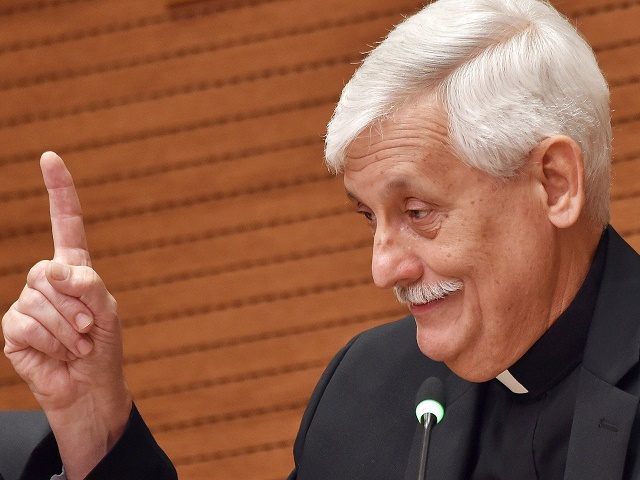In a strangely convoluted interview, the new Superior General of the Jesuit order suggested that different interpretations of the Bible can all be valid since no one really knows what Jesus said anyway.
“It would be necessary to start a nice reflection on what Jesus really said,” Father Arturo Sosa said in his interview with Swiss Vatican journalist Giuseppe Rusconi, since “at that time no one had a tape recorder to record his words.”
“What we do know is that Jesus’ words need to be contextualized. They were expressed with a language, in a specific setting and were directed to someone in particular,” he said.
Asked whether Jesus’ words have an “absolute value,” Father Sosa said that scholars have been struggling “to understand exactly what Jesus meant to say.”
“The word is relative, the Gospel is written by human beings, it is accepted by the Church which is made up of human persons,” he said.
“It is true,” he said, “that no one can change the word of Jesus, but we need to know what it was!”
Curiously, the Second Vatican Council, which Father Sosa appeals to, taught that “everything asserted by the inspired authors or sacred writers must be held to be asserted by the Holy Spirit,” and that the books of Scripture “must be acknowledged as teaching solidly, faithfully and without error that truth which God wanted put into sacred writings for the sake of salvation.”
It also declared that the Church has always firmly held that the four Gospels faithfully hand on “what Jesus Christ, while living among men, really did and taught for their eternal salvation until the day He was taken up into heaven.”
Getting down to specifics, the interviewer asked Father Sosa whether Jesus’ words regarding divorce are “debatable.”
The priest answered that Jesus’ words should not be doubted but “brought under discernment.” His words continue to oblige, he said, but they oblige us to “follow the results of discernment.”
The Jesuit seemed to suggest that the Holy Spirit is very active in the discernment process but was not quite so active in inspiring the biblical text itself, which was simply “written by human beings” and is therefore “relative.”
What is up for discussion, he continued, is “not the word of Jesus, but the word of Jesus as we have interpreted it.”
“Doctrine is a word that I don’t like very much, it brings with it the image of the hardness of stone,” he said. “Human reality is much more nuanced, it is never black or white, it is in continual development.”
Doctrine is part of discernment, and “true discernment cannot ignore doctrine,” Father Sosa said.
At the same time, however, discernment can reach conclusions at odds with doctrine “because doctrine doesn’t substitute discernment or the Holy Spirit,” he said.
Follow Thomas D. Williams on Twitter Follow @tdwilliamsrome

COMMENTS
Please let us know if you're having issues with commenting.